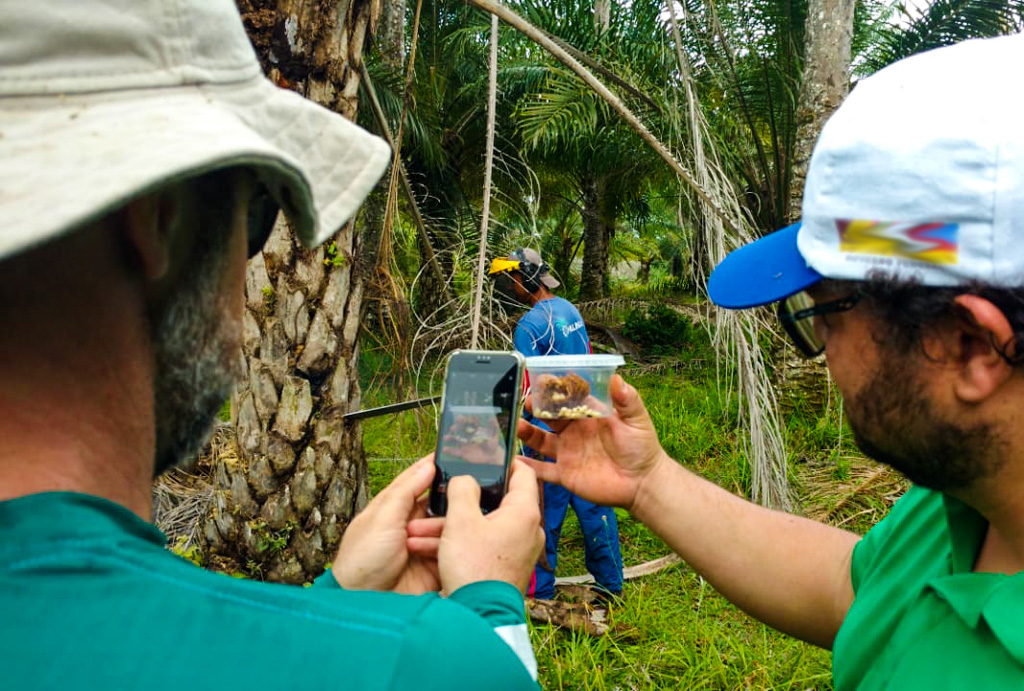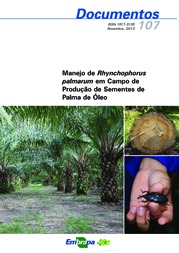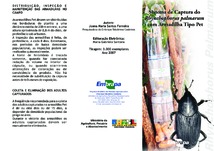Exchange with Colombia seeks biological control of palm pests
Exchange with Colombia seeks biological control of palm pests
For the month of May, researchers from Embrapa, the Federal University of Alagoas (UFAL) and from Corporación Colombiana de Investigación Agropecuária (formerly named Corpoica and now Agrosavia) will be working in cooperation in Northeastern states in the development of methods for the biological control of important pests of commercial palm species like coconut and African oil palm.
The activities are part of the project ‘Development of methods of biological control of quarantine Coleoptera borers in palm trees of commercial interest’, led by the Embrapa Coastal Tablelands (Aracaju, SE) researcher Aldomário Negrisoli, who works at the Rio Largo research unit (Unidade de Execução de Pesquisa - UEP) in Alagoas state. The project is part of a binational alliance that involves Brazil's and Colombia's governmental agricultural research organizations.
The main focus of the action in Bahia was collecting specimens of the parasitoid fly Billaea rhynchophorae, which has proven efficacy against the beetle Rhynchophorus palmarum, known as South American palm weevil or SAPFW, an important pest in Northeastern palm trees, and analyze the pest and its natural enemy at UEP's labs to develop control protocols for the region.
The plants attacked by the weevils initially have their new leaves be ill-formed and damaged as an effect of the adult insect's penetrating the plant. With the growth of the larvae and increased number of galleries, internal tissues are completely destroyed, which can lead to the death of the plant, which should be removed from the plantation and burned.
The flies Billaea rhynchophorae were identified more than 25 years ago as parasitoids of the palm weevil in the South of Bahia, with parasitism rates of up to 72%. Despite such high rates, further studies on the species or on their introduction in new geographical areas had not been conducted yet.
Activies
From May 6th to 11th, Aldomário, alongside another reseacher from the UEP in Rio Largo, Elio Guzzo, and Bernard Leo Lohr, a researcher from Agrosavia, performed the collection of the parasitoid fly. The activity consisted in identifying African oil palm treed that had been attacked by the beetle. With support from the Executive Commision of the Cacao Crop Plan (CEPLAC), the researchers cut the plants, and collected and bagged the beetle cocoons to be transported to the laboratory and to verify the fly's parasitism.
On the 7th and 8th, the collection was performed at a commercial plantation by the company Oldesa, in Jaguaripe, and on the 9th and 10th in an area cultivated by Opalma, in Taperoá.
From the 13th to the 17th, the researchers' work with the collected material was concentrated at UEP's labs, and they were joined by the Agrosavia researcher Jackeline Gaviria Veja.
As part of the cooperation, the Colombian researchers trained Brazilian scientists and postgraduate scholarship holders who work in the project about methods to breed the borer and the parasitoid fly for future research activities.
On the 17th, the researchers met with the director of UFAL's Agrarian Sciences Center, Gaus Andrade, and the institution's coordinator of the Postgraduate Program on Plant Protection, Iraíldes Assunção, to level up information and plan future activities. Said program enables university students to work in the research project.
In the week from the 20th to the 24th there will be capacity-building activities with the researcher Lohr. On Wednesday (22), the general head and the head of Research at Embrapa Coastal Tablelands, Marcelo Fernandes and Ronaldo Resende, met with the project team to exchange information about the results and plan future activities.
Translation: Mariana Medeiros
Saulo Coelho (MTb/SE 1065)
Embrapa Coastal Tablelands
Press inquiries
tabuleiros-costeiros.imprensa@embrapa.br
Phone number: 79 4009-1381
Further information on the topic
Citizen Attention Service (SAC)
www.embrapa.br/contact-us/sac/



